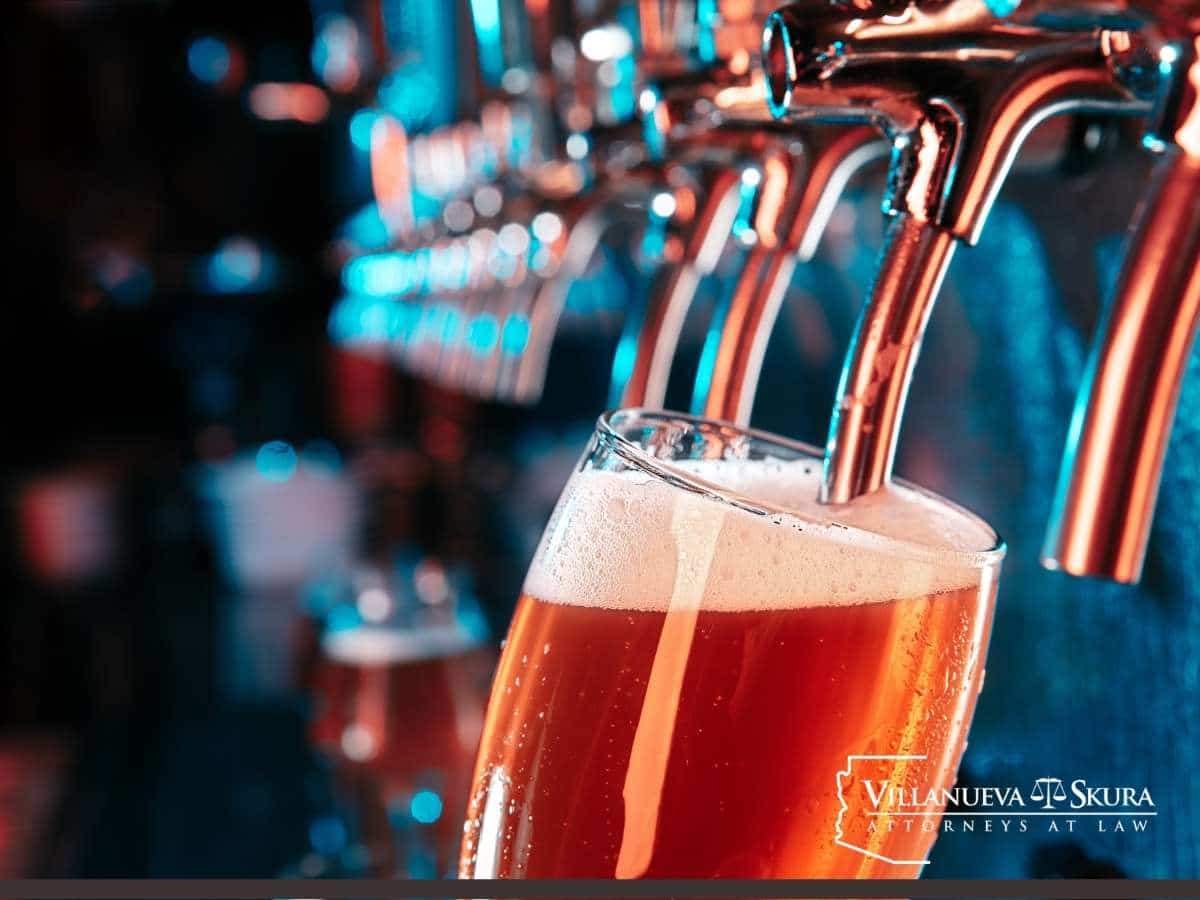Most of the time, a night out is fun and uneventful – after a few beers and some laughs, you get home safely. Other nights, too much alcohol consumption can lead to bar fights, DUIs, and other injuries related to impaired judgment from alcohol. If you or someone you loved has been injured as a result of excessive alcohol consumption, you might be wondering if the Arizona bartender or bar can be held liable for overserving the person who allegedly caused the injuries.
The simple answer is that bartenders who serve clearly intoxicated patrons may be at risk for both legal and civil charges. However, the overall situation is complex and requires the expertise of a Chandler criminal defense attorney.
As an establishment that serves alcohol, bars and restaurants can be vulnerable to the legal risks of overserving their patrons. A skilled bartender can effectively limit the damage that an intoxicated person could cause by refusing to serve more drinks, but on the flip side may face legal or civil charges if they over-serve. Many states have enacted legislation that allows for prosecution and civil suits against commercial establishments that serve alcohol to individuals who are visibly intoxicated. Often referred to as “dram shop” laws, they hold the establishment or person serving alcohol liable for the acts committed by the intoxicated person they were serving.

Victims of crimes that occurred as a result of a person’s intoxication may be eligible for damages from both the individual and the establishment who served the person. As a result, many establishments that serve alcohol carry liability insurance in case of prosecution.
In order to charge a bar or bartender with dram shop laws, the prosecution must be able to:
If these charges can be proven, the consequences for the establishment and/or bartender can be severe. They may include significant fines along with loss of liquor license or employment. In some cases, conviction can result in severe financial penalties and even jail sentences, depending on the circumstances.
Alcohol is a leading cause of criminal behavior, including driving under the influence and associated accidents, injuries, and deaths. Barfights are frequently the result of excessive alcohol consumption and can lead to charges of assault, battery, larceny, property damage, and more. If a visibly intoxicated person continues to be served in a bar and later causes a vehicle accident or property damage, the third party who is injured as a result can sue the establishment or bartender for damages.
Driving under the influence of alcohol and drugs causes a high percentage of accidents across the United States, many of which result in injuries or deaths. In an effort to prevent drunk driving accidents, many states have adopted dram shop laws that require bar owners to take responsibility to be mindful of the patrons they serve and to refuse to overserve, in hopes of reducing injuries and deaths as a result of excessive alcohol consumption.
Likewise, a bartender who notices that one of their patrons is too drunk to drive has a responsibility to stop serving that person and prevent them from driving away from the premises. As a fellow customer, you also have the right to report a person to the police if you notice that someone has been drinking a lot and then attempting to enter their vehicle.
If you have been hit or injured by a drunk driver, you may have two claims: one against the driver who chose to drive while under the influence and a second against the bar who potentially overserved and allowed the person to leave their establishment.
First-party dram shop cases are another potential source of liability for bartenders and bar owners. These legal cases occur when the person who over consumed alcohol prosecutes the bartender or establishment in an effort to receive compensation for the injuries or damages they caused while under the influence of alcohol. First party cases are usually difficult to win because juries tend to believe that a person is responsible for their own consumption of alcohol. However, minors or guardians of minors can sometimes prosecute and win in first party cases because individuals under 21 cannot be served alcohol.
One of the most difficult qualifiers in a dram shop case is that patrons need to prove that a bartender was overserving. It relies on the key element of “obvious intoxication” which is defined as proof that the person’s faculties were obviously and substantially impaired, as shown by significantly uncoordinated physical action or dysfunction. If the bartender or establishment can prove that they could not reasonably be expected to know that the patron was drunk, it’s likely that they will not be held liable for the accidents or injuries that resulted from the patron’s drunkenness.
This blog post is courtesy of Dove Law Firm, a preeminent Arizona law firm that specializes in criminal defense, DUI defense, personal injury law, civil litigation and commercial litigation. Contact their firm today and get in touch with their trusted team of criminal defense attorneys.